Abstract
It is widely agreed that overtraining should be employed in order to achieve peak performance but it is also recognised that overtraining can actually produce decrements in performance. The challenge appears to be one of monitoring stress indicators in the athlete in order to titrate the training stimulus and prevent the onset of staleness. The present paper summarises a ten-year research effort in which the mood states of competitive swimmers have been monitored at intervals ranging from 2-4 weeks during individual seasons for the period 1975-1986. The training cycle has always involved the indoor season which extends from September to March and the athletes who served as subjects were 200 female and 200 male competitive swimmers. The results indicate that mood state disturbances increased in a dose-response manner as the training stimulus increased and that these mood disturbances fell to baseline levels with reduction of the training load. Whilst these results have been obtained in a realistic setting devoid of experimental manipulation, it is apparent that monitoring of mood state provides a potential method of preventing staleness.
Full text
PDF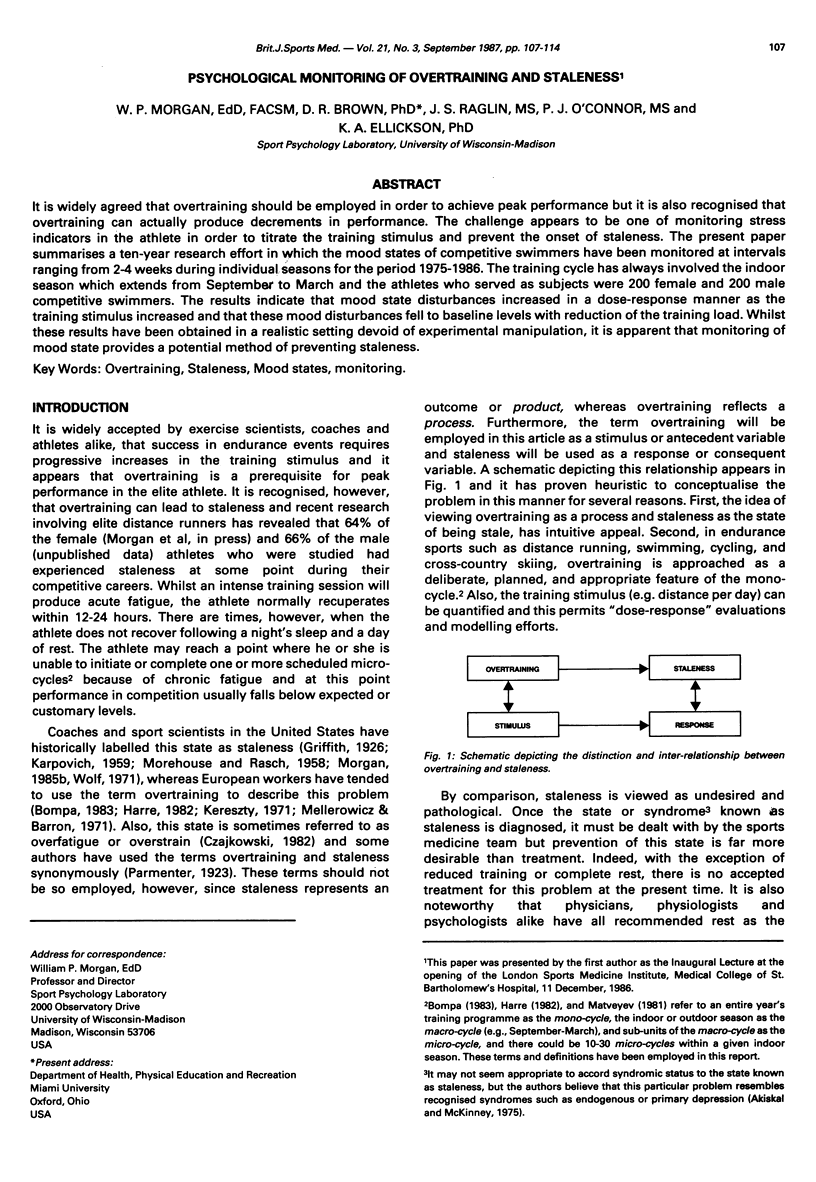
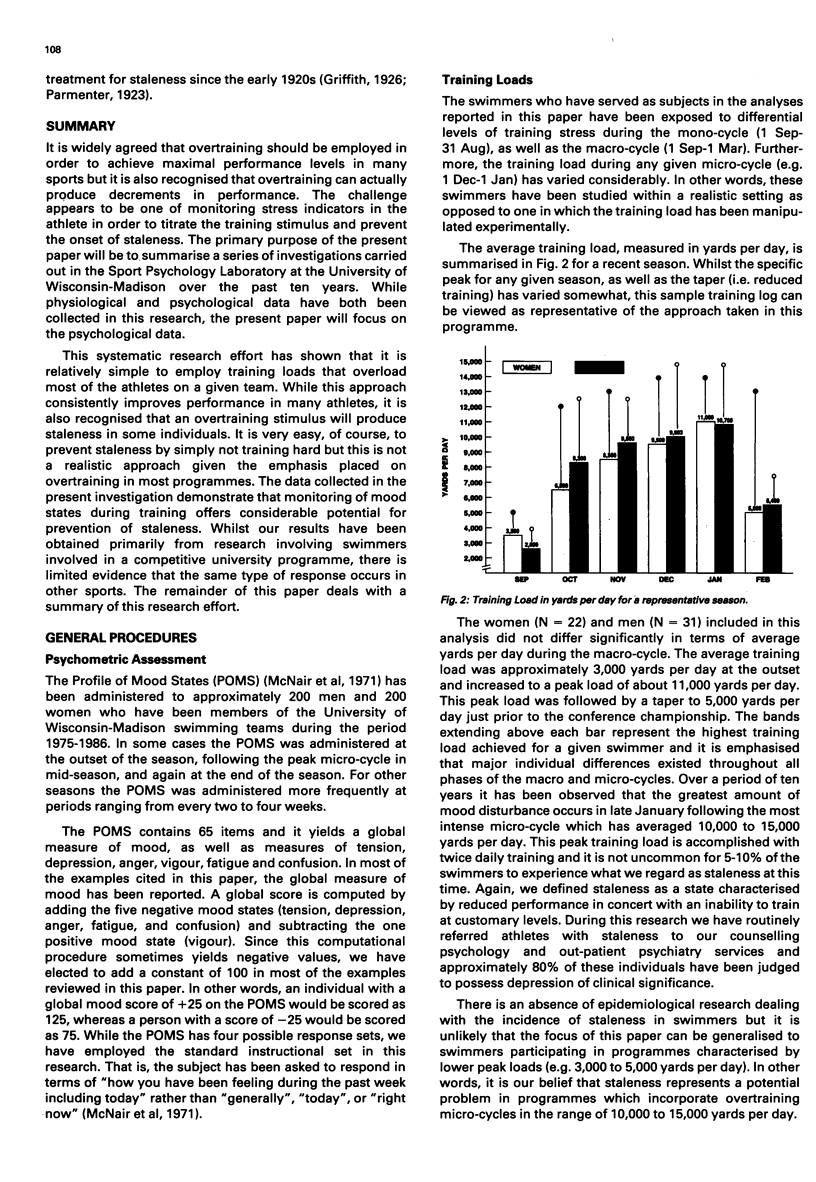
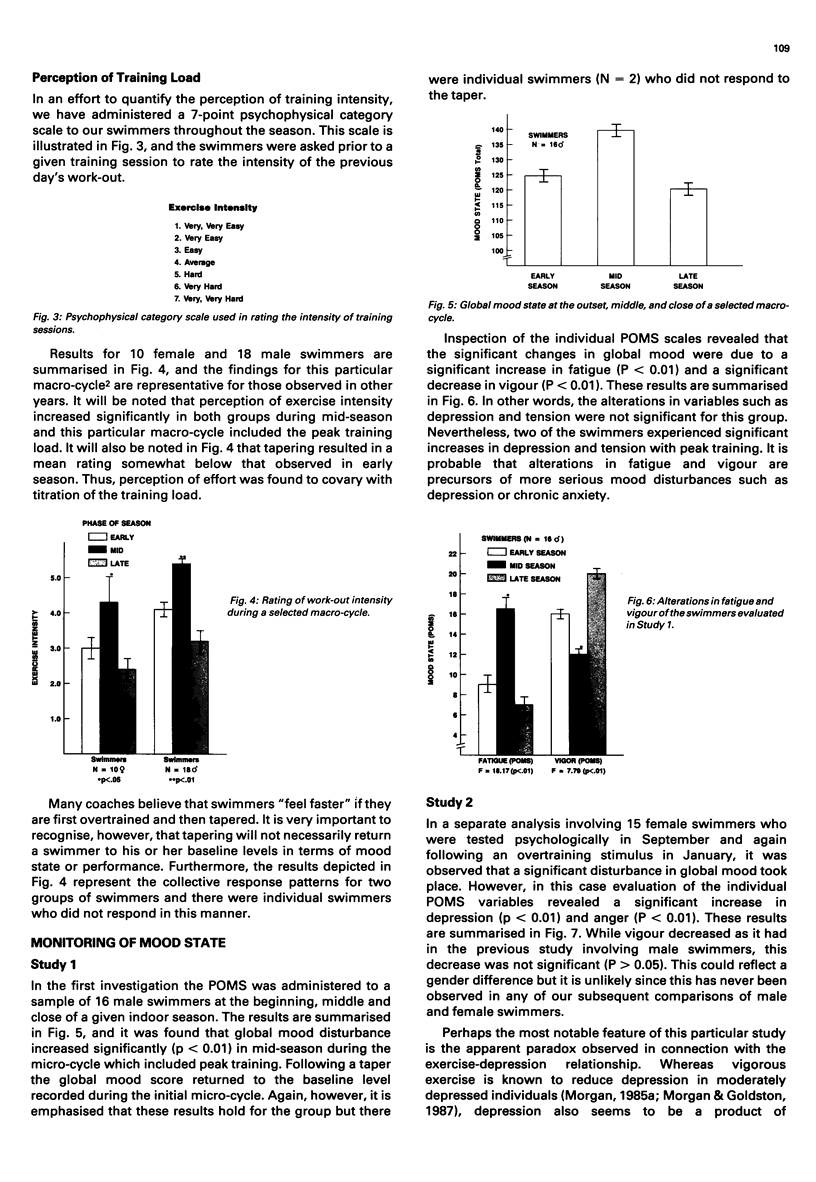
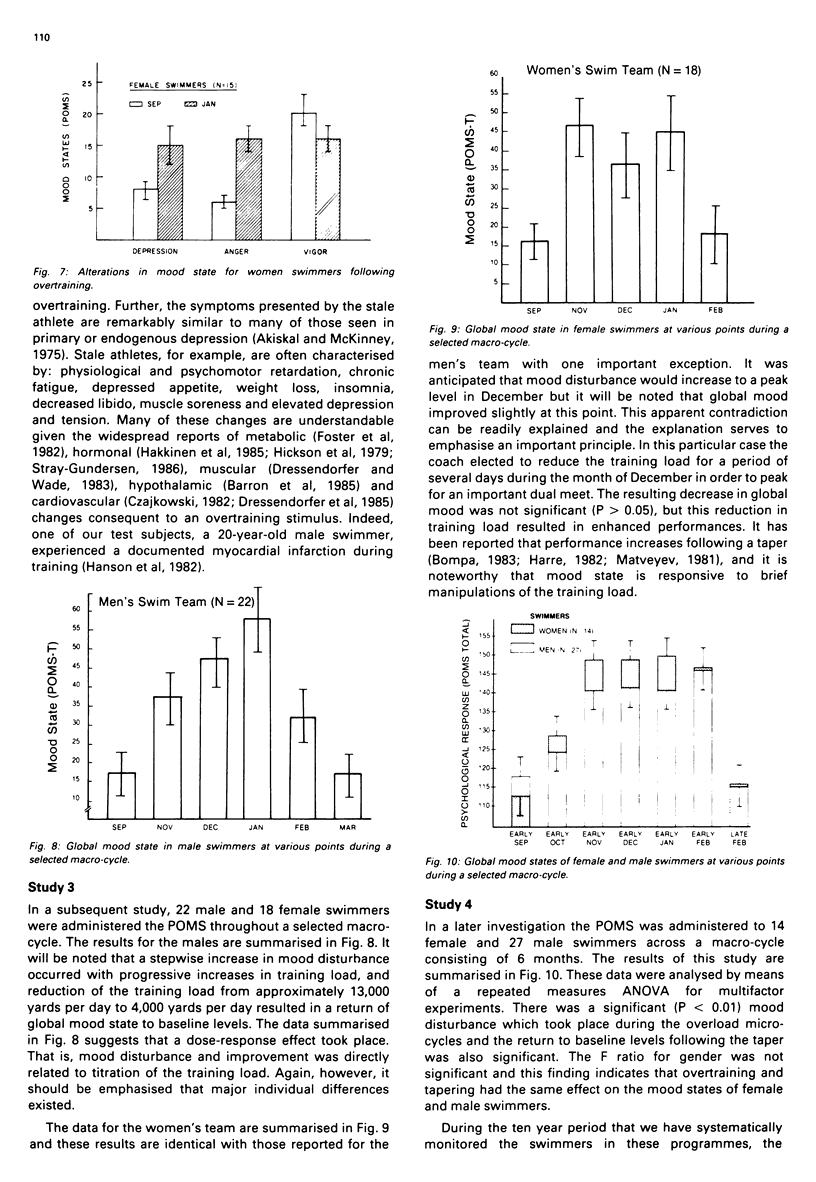
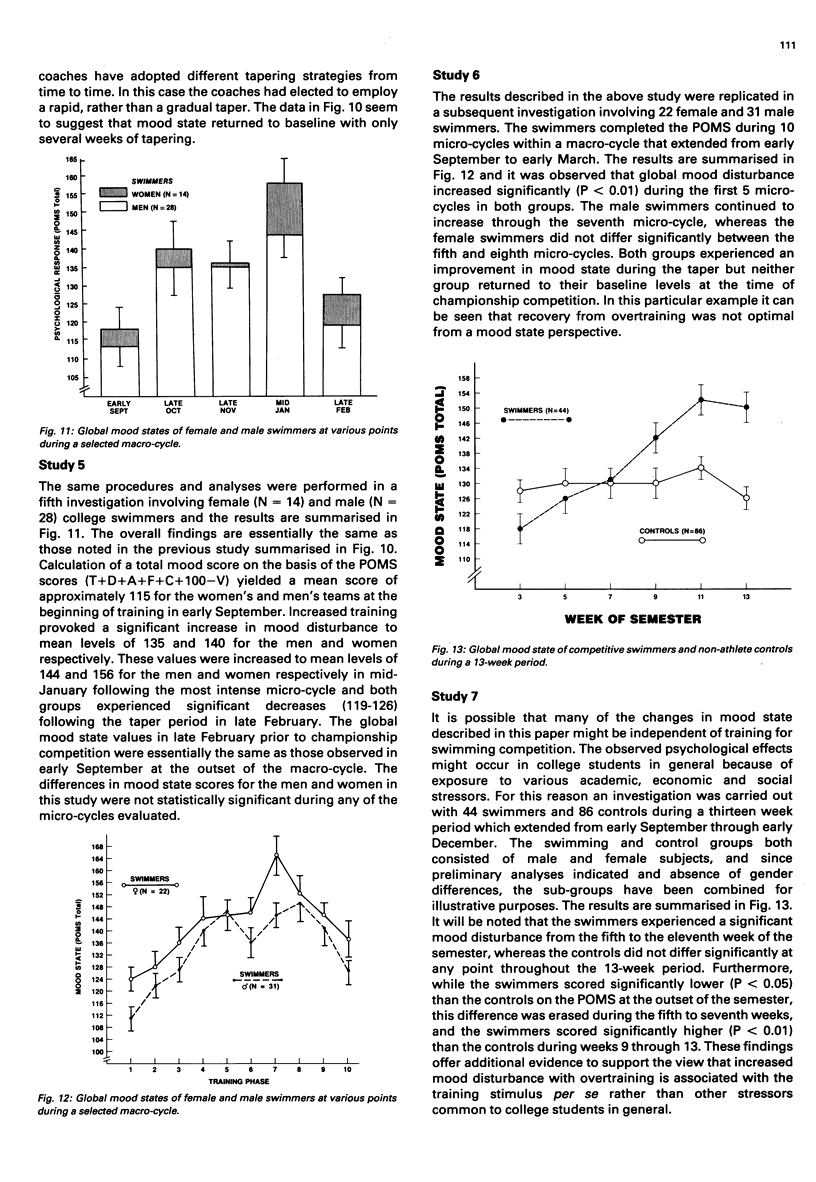
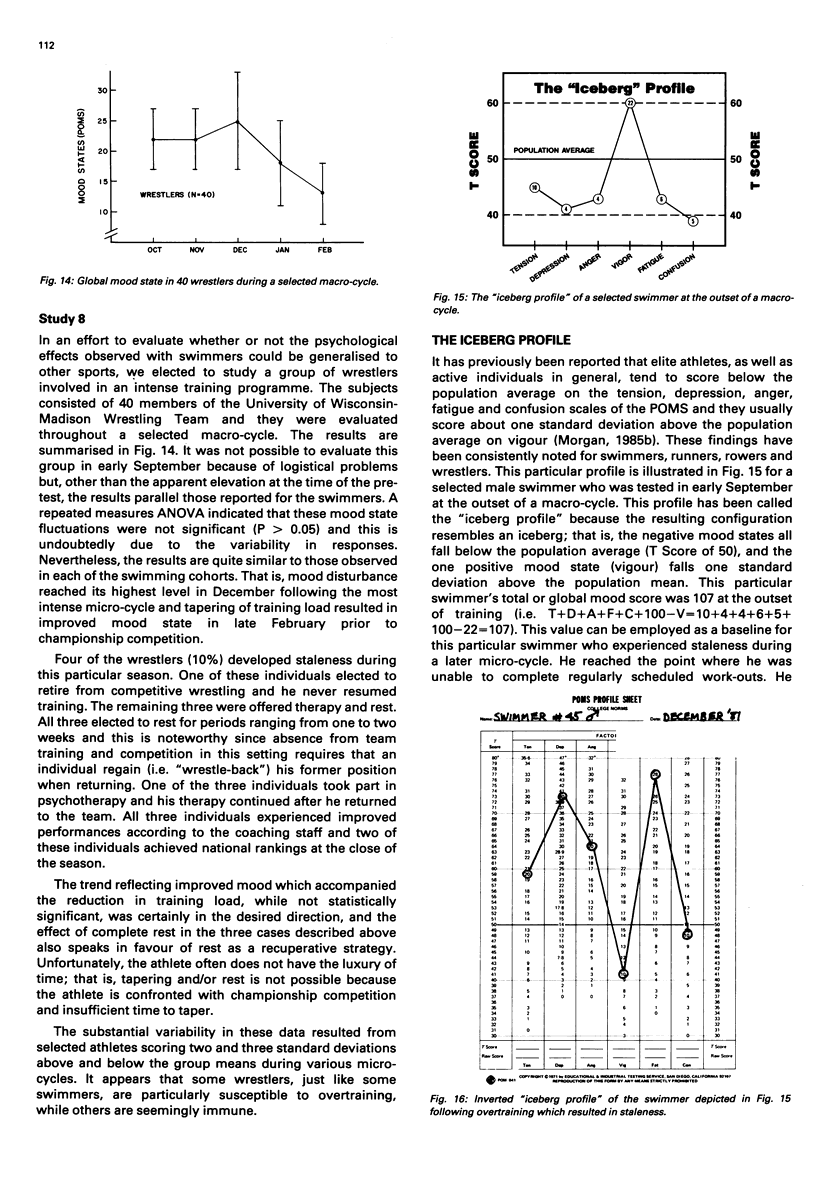
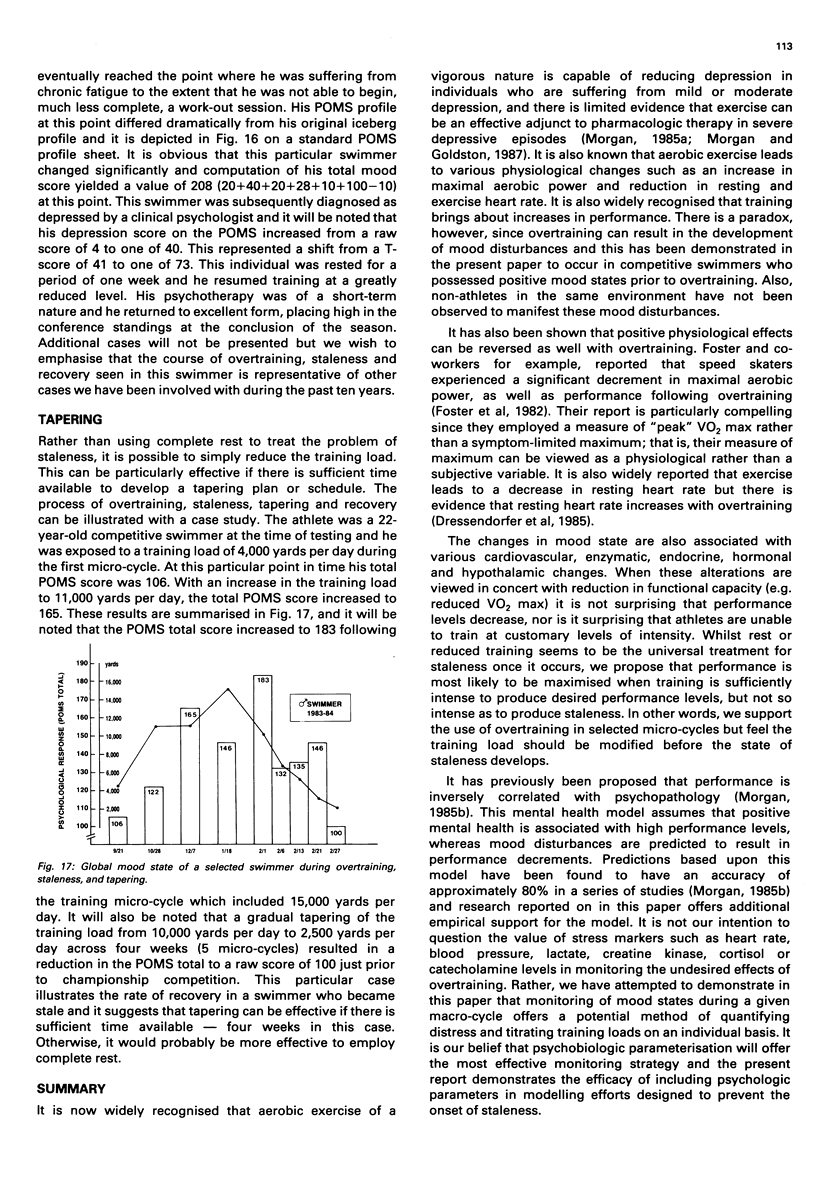
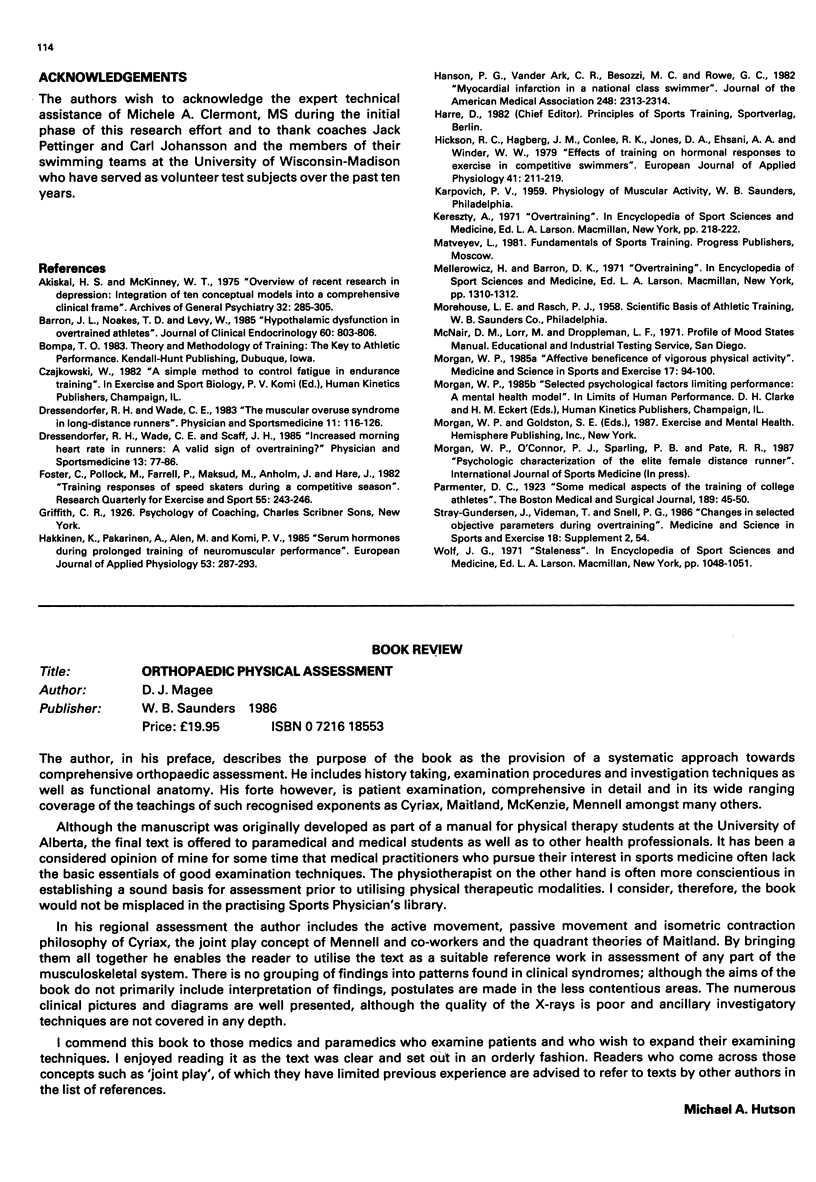
Selected References
These references are in PubMed. This may not be the complete list of references from this article.
- Akiskal H. S., McKinney W. T., Jr Overview of recent research in depression. Integration of ten conceptual models into a comprehensive clinical frame. Arch Gen Psychiatry. 1975 Mar;32(3):285–305. doi: 10.1001/archpsyc.1975.01760210019001. [DOI] [PubMed] [Google Scholar]
- Barron J. L., Noakes T. D., Levy W., Smith C., Millar R. P. Hypothalamic dysfunction in overtrained athletes. J Clin Endocrinol Metab. 1985 Apr;60(4):803–806. doi: 10.1210/jcem-60-4-803. [DOI] [PubMed] [Google Scholar]
- Hanson P. G., Vander Ark C. R., Besozzi M. C., Rowe G. G. Myocardial infarction in a national-class swimmer. JAMA. 1982 Nov 12;248(18):2313–2314. [PubMed] [Google Scholar]
- Hickson R. C., Hagberg J. M., Conlee R. K., Jones D. A., Ehsani A. A., Winder W. W. Effect of training on hormonal responses to exercise in competitive swimmers. Eur J Appl Physiol Occup Physiol. 1979 Jul 2;41(3):211–219. doi: 10.1007/BF00430013. [DOI] [PubMed] [Google Scholar]
- Häkkinen K., Pakarinen A., Alén M., Komi P. V. Serum hormones during prolonged training of neuromuscular performance. Eur J Appl Physiol Occup Physiol. 1985;53(4):287–293. doi: 10.1007/BF00422840. [DOI] [PubMed] [Google Scholar]
- Morgan W. P. Affective beneficence of vigorous physical activity. Med Sci Sports Exerc. 1985 Feb;17(1):94–100. [PubMed] [Google Scholar]


